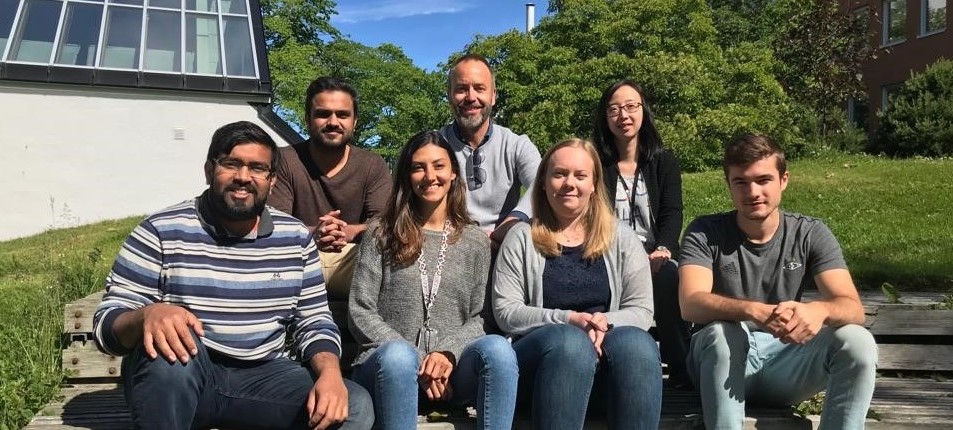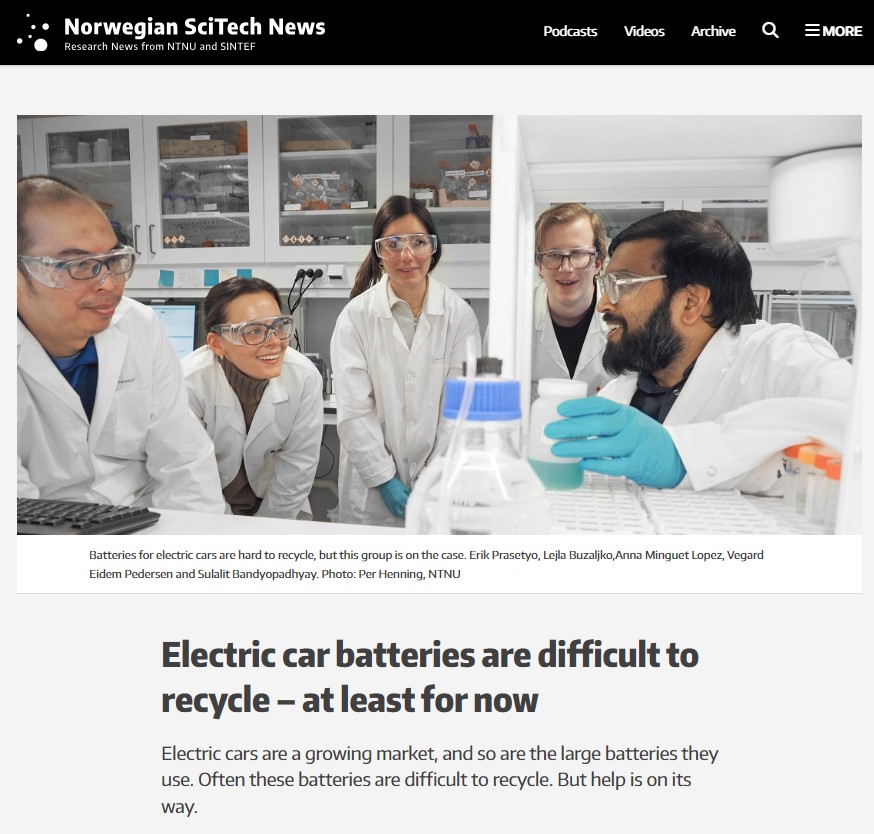Crystallization and particle design
Crystallization, Particle Design and Hydrometallurgy
Our research group focuses on both fundamental and applied research in the fields of crystallization, particle design and hydrometallurgy. By strengthening our fundamental understanding in these areas, we aim to contribute to the advancement of sustainable technologies such as recycling of raw materials, waste treatment and water management; as well as functional material design for a wide array of applications.

Industrial Crystallization
Industrial crystallization is a crucial process in pharmaceuticals, chemicals, and materials manufacturing. Transitioning from traditional methods involving high energy consumption, solvent-intensive operations, and batch processes to more sustainable and green technologies in crystallization is essential to reduce environmental impact while maintaining efficiency and product quality. Advances such as process intensification, use of greener solvents, use of continuous processes and integration of renewable energy sources can significantly lower carbon footprints. By adopting these sustainable approaches, industries can enhance economic viability while aligning with global environmental regulations and circular economy principles.
In our research, we focus on the crystallization of active pharmaceutical ingredients (APIs) to optimize separation and purification processes, achieving high yields while tailoring particle populations for precise phase and polymorph control, as well as enhanced filterability.
Ongoing project:
- RCN Innovation Project for the Industrial Sector: Transitioning to circular economy and green carbon solvents by applying novel, continuous manufacturing of contrast media (2025-2028)
Nanomedicine
Nanomaterials and their exceptional properties stemming from the nanoscale have attracted great attention among the scientific community as well as in the industry sector for the past few decades. Applications of such fascinating materials within nanomedicine ranging from diagnostics to therapeutics, require systematic mapping of structure-property relationships to their synthesis. Further, an in-depth understanding of the formation mechanisms of such nanomaterials is essential to manipulate the reaction conditions impacting the resultant properties.
With an aim to fabricate nanomaterials for applications within biosensing, diagnostics, drug delivery and bioimaging, research in this area focuses on synthesis, characterization, and functionalization of nanomaterials for fundamental understanding of growth mechanisms through experiments and molecular modelling. Our research focuses on the design of metallic nanomaterials such as plasmonic and magnetic nanomaterials as well as polymer-based nanomaterials through batch, semi-batch, and continuous routes with an aim to control their physico-chemical properties.
One highlight of our fundamental research designed towards applications in the health sector is the recent development of magnetic nanoparticle based COVID-19 test in 2020, that has further catalyzed our research within clinical diagnostics. Our aim is to develop nanomaterials in an iterative fashion, optimized for specific theranostic applications.
Hydrometallurgy and Battery Recycling
Increasing growth of electric vehicles worldwide has put tremendous strain on the supply of raw materials such as lithium, nickel, manganese, cobalt, etc. required for battery production. The recycling of end-of-life batteries has become an essential measure to sustain the material supply while simultaneously mitigating the impact of battery waste on the environment.
Several battery recycling processes have been developed and are already being used at industrial scale. However, battery recycling is a complex and high-cost process with low technology readiness for recovery of lithium, graphite, electrolyte, organic compounds and so on. The complexity of the process is related to fast evolving battery chemistries, all of which will eventually enter as feeds to recycling processes, leading to intricate combinations of separation and purification processes. Further the current recycling technologies use numerous chemicals, deplete water resources, generate excessive waste, and side products, which are not always evaluated within sustainable and circular frameworks.
With an aim to tackle these challenges, research in our team is to develop simple, compact, and low energy battery recycling flowsheets based on hydrometallurgical processes, which should be robust enough to deal with various battery compositions, also in the future. The flowsheets are developed not only to recover target metals and non-metals but also recover the side products (impurities and waste) with a high focus on chemical reagents regeneration. Our approaches are based on reducing energy inputs, chemicals, and water resources, while targeting high efficiency and robustness. Research in our team is expected to develop recycling processes that could compete with mining practice of natural resources to supply battery raw materials in terms of cost, sustainability, and environmental impact.
Environmental applications related to nanomaterials
The world is plagued with several challenges that affect natural resources ranging from the oceans to the atmosphere. A potential challenge related to environmental waters is to track and trace contaminants to suggest remediation measures. Another challenge related to the environment is increased greenhouse gas emissions in the oceans due to biofouling of marine vessels that lead to high fuel consumptions.
In our research, such challenges are addressed by combining chemical engineering principles and fundamentals of colloids and polymers. Within this thematic area, our efforts are concerted on developing nanomaterials for hydrological tracing, understanding viral transport through drinking water columns, designing photocatalysts for waste degradation, investigating mass transfer in nanofluids for carbon-dioxide capture, among others. Our aim is to understand several phenomena that affect environmental resources and provide cutting-edge solutions to remedy existing and emerging challenges.
Internationalization Projects: Research and Education Mobilities
Our aim is to establish lasting academic and research collaborations among leading partners within Chemical Engineering globally. This is expected to be achieved by
- educating students through mobility and exchange stays
- educating students and young researchers through participation in ongoing research activities in the partner institutions
- preparing and giving joint teaching courses and summer schools at the master and PhD levels
- increasing professional and personal skills and competencies of educational staff and PhD/Master students by gaining experiences abroad.
Our activities are expected to prioritize NTNU’s international engagement in areas of both international mobility as well as internationalization of programs of study.
Ongoing projects:
- UTFORSK: Integrating Research & Education in Sustainable Chemical Engineering for Batteries & Water Treatment (2025 – 2028)
- INCP2 (Indo-Norway Cooperation Program): Fostering Safety in Use of Advanced Nanomaterials in Health Sector (2024 – 2027)
- Erasmus+ Global Mobility Program with India and Pakistan (2023 – 2026)

